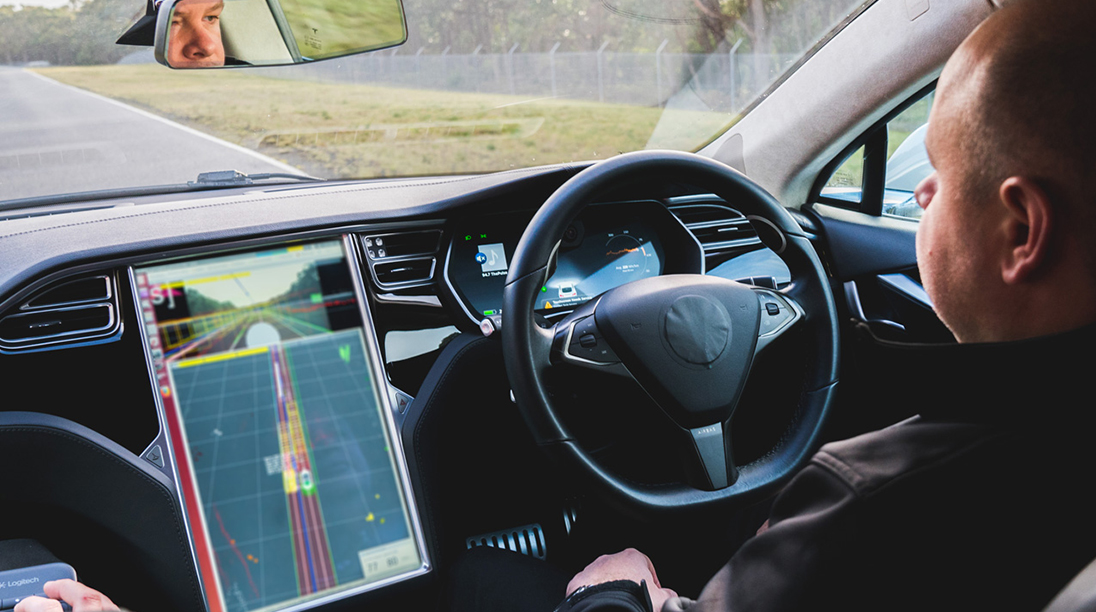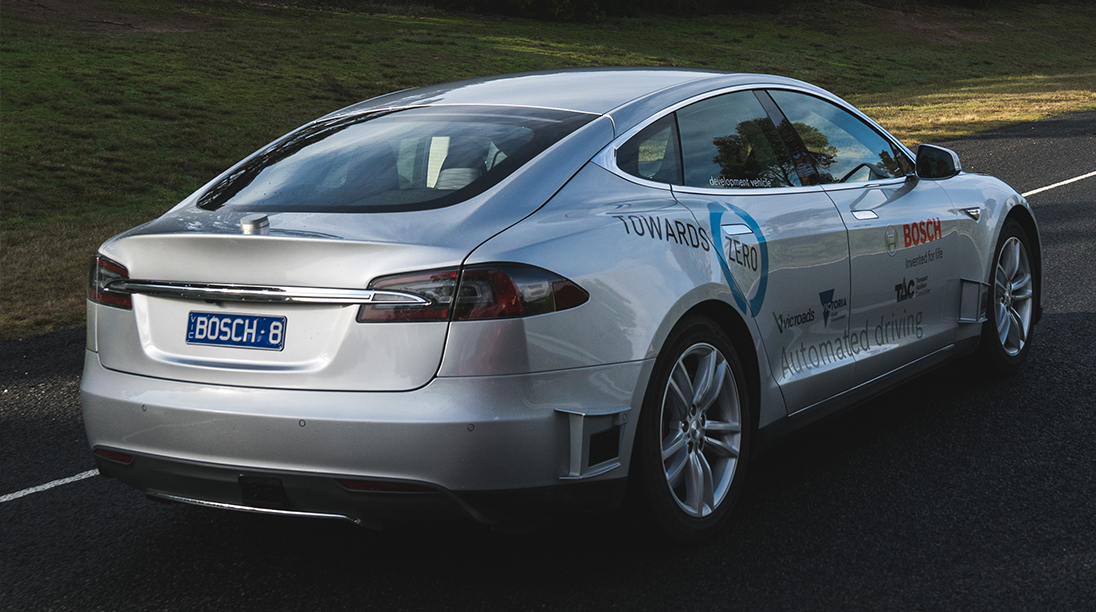
Chris Woods
AUSTRALIA is at the sharp end of global self-driving vehicle development, with Bosch Australia saying that autonomous systems are only about four years away from being incorporated into production, and the only thing that could hold them back is a shortage of engineers.
Bosch Australia is poised to start trials in Victoria to develop a production system for freeways and highways and stem the state’s inflated country road fatalities.
The company was this month given $2.3 million of funding from the Victorian government’s Connected and Automated Vehicle (CAV) Trial Grants Program to be used to develop and road-test the state’s first Automated Driving System (ADS) permit for on-road testing of highly-automated driving systems.
Last year, Victoria became the only Australian state to regulate and support the ADS permit scheme, which allows the on-road use of automated vehicles for testing and development.
It is not the first time Bosch has been funded to grow its autonomous program in Australia.
Bosch Australia regional president of vehicle safety and autonomous vehicles Chris Woods told GoAutoNews Premium that government funding originally allowed the building of the vehicle – a Tesla – for the Intelligent Transport Systems world congress held in Melbourne in 2016.
“This is the same vehicle but with improved technology,” he said. “The car contains all Bosch equipment. We just use the Tesla for the stopping, starting and steering facilities.
“We originally set this vehicle up for the ITS in 2016 with government funding as part of Bosch’s global development. We’ve also done trials with TAC and TransUrban and on the M1 in Melbourne.
“The latest program is another step to bring the vehicles to trial on country roads because, unfortunately, there is a ratio of five-to-one fatalities on rural roads in Victoria.
“The government sees this technology as a way to reduce that ratio.”
Mr Woods said this technology is about four years away from being incorporated into vehicle production. ]
“This is an early stage development so we would look for an OEM partner to bring this to production,” he said.
“This system is a highway pilot vehicle that works in an automated fashion while driving on freeways and highways.
“For example, if you lived in the country and you wanted to commute to the city, you drive your vehicle from home until you get on the freeway.
“You then engage the highway pilot system that would then take over the driving journey until you get near the city and get off the freeway, where you would take over and drive the last distance to your destination.
“It uses many onboard sensors to do this and creates a picture of the environment around the car. So it operates by avoiding obstacles.”
Mr Woods said that in the global autonomous vehicle development sector, Australia rates very highly.
But more people are needed, as he said that Bosch has “a huge need for engineers with the skill set around the world”.
“We have hundreds and hundreds of positions globally, and we’re aiming to employ a lot of those here in Australia over the coming years,” he said.
“We need high-capability engineers to work on our projects, computer science degrees, machine loading, data analytics and so on, and we have already brought jobs to Australia in these areas.
“In Australia, we have about 70 people in our department of vehicle safety and autonomous vehicles. About half work on driver assistance programs and automation, and of those, eight have direct involvement in the trial.”
Mr Woods said the pilot system now under development for Australian roads was “an evolution, not a revolution”.
“There are five levels of automation,” he said. “State-of-the-art modern cars are Level 2, where the driver always maintains responsibility for the car.
“Level 3 is where our current pilot system is at. So the driver does not have to monitor the road and the car is basically driving itself.
“We will have a Level 4 product entering trials in this year with Mercedes-Benz as the partner. Road trials of this robo-taxi will start in the US this year.”
Mr Woods said there was no limit to how far the autonomous car development can go and it is constrained only by government legislation.
Bosch has a permit from the Victorian government to conduct the testing on the road. Victoria is the only state proactive in open-road testing.
“We understand from the National Transport Commission that it is looking for a purpose-built piece of legislation to allow driving on Australian roads, and we believe that this is expected to go through parliament by 2020,” Mr Woods said.
“That is supposed to be harmonious legislation that covers all states and territories. We are very supportive of this approach. At the moment, Victoria is the only state involved in this project.”
Bosch’s research dispels the belief that autonomous cars would first be confined to urban and particularly city-based areas where the environment is contained and the vehicle speeds are low.
But Mr Woods said the best environment to start with was freeways.
“They are easier. They generally have separated traffic, are free of pedestrians and quite well maintained and signposted,” he said.
“Urban environment require us to manage traffic lights and pedestrian crossings and other complications.”
The current program started with onboard technology added to the Tesla during the end of last year. The car goes on the road later this year, and the trial is expected to end its current format by 2020.
By Neil Dowling













 Read More: Related articles
Read More: Related articles

